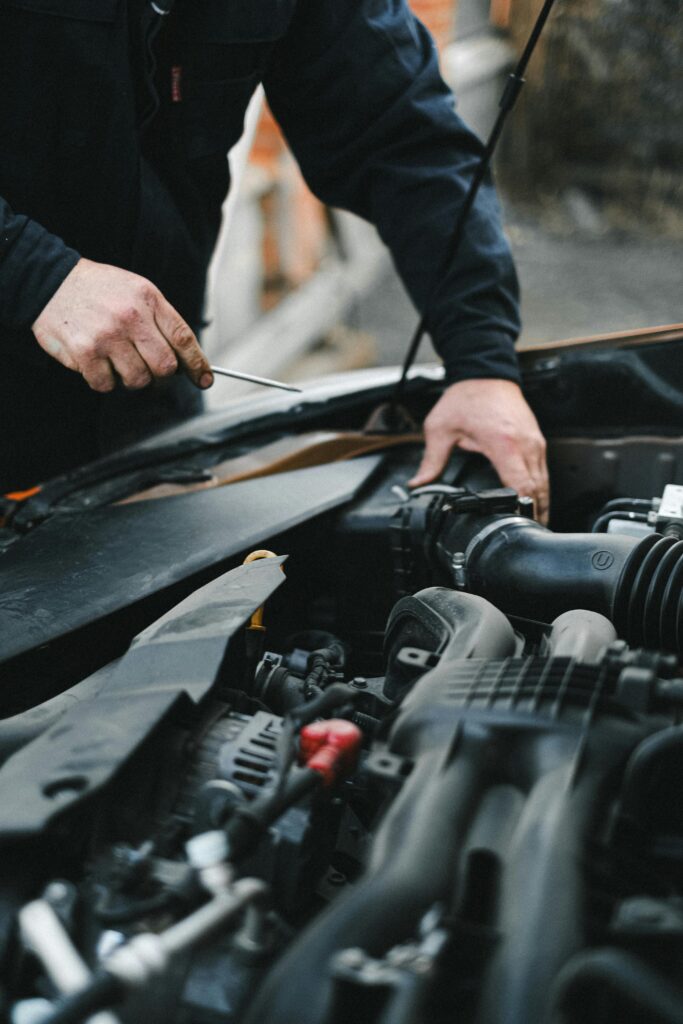Reasons Why Your Car's Check Engine Light Might Come On – And What To Do If It Happens While Driving
Seeing your car’s check engine light turn on can feel intimidating—especially if you’re unsure what caused it or how serious it is. For many Kenyan motorists, it starts with a promise to “monitor it,” but soon the car begins to misbehave. Ignoring the check engine light could lead to more severe and costly damage. In this article, we’ll explore the most common reasons your car’s check engine light comes on, what it actually means, and most importantly, what actions you should take when it appears on the road.
What Is the Check Engine Light?
Check engine light is a component of a car onboard diagnostics system (OBD). This warning light comes on to alert you when something wrong happens to your vehicle engine, emissions or the electric system. It may indicate a small item such as a loose fuel cap, or something major such as engine misfire, or catalytic converter going out.
Reasons Why Check Engine Light Turns On
The following are the typical reasons of a check engine light in Kenyan driving landscape:
1. Loose or Faulty Fuel Cap
The light could be activated in case one of the fuel caps is missing or loose. It leads to leakage of pressure in the fuel system, gas mileage. Reminder: Never forget to tighten the fuel cap to a click after refueling at Total, Shell, or other local petrol stations.
2. Worn Spark Plugs or Ignition Coils
Worn out/degenerated spark plugs also interfere with combustion, causing fuel consumption and resultant poor engine performance activities in addition to rough idling events, which existed mostly in older cars on the Kenyan roads. Remedy: Change spark plugs after every 30,000km and 50,000km in vehicles that it is prone to use in congested cities such as Nairobi or Kisumu.
3. Faulty Oxygen Sensor
O2 sensor keeps track of the amount of oxygen in your exhaust gasses. Failure of the same can cause your engine to consume excessive fuel and give off excessive emissions. It may be a typical problem of vehicles which were not regularly serviced.
4. Damaged Catalytic Converter
The catalytic converter is an emission reducing agent. If it is clogged or faulty your fuel economy becomes poor and your car may fail on Kenya’s NTSA emissions tests. Do not neglect this. A faulty catalytic converter is a very expensive repair and may cause additional damage to the engine.
5. Bad Mass Airflow (MAF) Sensor
The engine is informed by this sensor of the amount of air passing in. Failure to operate will influence the air-fuel mixture, causing low mileage and jerking. People who frequently drive on dusty, bumpy roads or on the Kenyan roads with no regular changes of filters are most likely to experience this.
6. Faulty EGR Valve or Vacuum Leaks
These influence the natural flow and emission of fuel. In case of being clogged or broken, it can activate the light and lead to harsh driving.
7. Aftermarket Modifications or Bad Wiring
Badly fitted accessories (e.g. low quality alarms or stereos) may cause problems with engine sensors.
What Should You Do If the Check Engine Light Comes On While Driving?
1. Understand the Light's Behavior:
- Steady Light: If the check engine light is on steadily, it indicates a non-urgent issue. You can usually continue driving but should plan to have the vehicle checked as soon as possible. - Flashing Light: If the check engine light is flashing, this indicates a more serious problem, such as a misfire that could damage the catalytic converter. In this case, you should pull over immediately and turn off the engine.
2. Assess the Situation:
- If you feel the car is running normally and the light is steady, you can often drive home or to a nearby mechanic. - If you notice any unusual sounds, smells, or changes in performance (like stalling, loss of power, or overheating), it’s best to pull over and turn off the engine.
3. Safety First:
- Always prioritize safety. If you’re on a busy road and can’t pull over safely, continue to drive cautiously until you find a safe spot to stop.
4. After Pulling Over:
After stopping, you may ask whether there are any visible problems (such as smoke, weird sounds, or leaks). When all the procedures appear normal, then you can ignite the engine to ascertain whether the light indicates the presence of the light. In case no lights have gone off, or you notice some trouble, it is recommended to call a tow truck or ask someone to help.
Book a Car Diagnosis with Thoonjo (Kenya’s Trusted Auto Platform)
At Thoonjo Errand Runners, we connect you with certified mechanics across Kenya who can:
- Run full OBD diagnostics
- Fix spark plug or sensor issues
- Replace damaged fuel or emissions parts
- Provide mobile service to your home or workplace
Available in Nairobi, Mombasa, Kisumu, Nakuru, and Eldoret.
Book a mobile mechanic or garage appointment today via Thoonjo.co.ke

Frequently Asked Questions
Can I continue driving if the check engine light is on?
It definitely can be, provided that the light is constant, and the car feels quite normal, but only within short distances. Have a scan, and as soon as possible.
What if the light is flashing?
Flashing is a sign of a major problem, such as an Ignition failure. Stop at once, and turn off the engine.
How much does it cost to fix a check engine issue in Kenya?
Diagnosis typically costs KSh 1,000–3,000. Repairs vary depending on the problem (e.g., sensors vs. catalytic converter).
Can I get a mobile mechanic in Nairobi or Eldoret?
Yes! Thoonjo has 24 hrs mechanics that respond to your place of residence or workplace or even on the road side.


